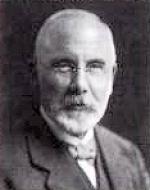1840 - 1925 Person Name: George Hugh Bourne (1840-1925) Scripture: Psalm 2 Author of "Lord, Enthroned in Heavenly Splendour" in Common Praise (1998) Bourne, George Hugh, D.C.L., son of Rev. R. B. Bourne, born at St. Paul's Cray, Kent, 8th Nov. 1840, and educated at Eton, and O. C. C, Oxford, graduating B.A., 1863; B.C.L., 1866; and D.C.L. 1871. Taking Holy Orders in 1863, he became Curate of Sandford-on-Thames, 1863. He was afterwards Head Master of Chardstock College, and is now (1886) Warden of the same school, which has been transferred to St. Edmund's, Salisbury. Dr. Bourne has written the following hymns:—
1. Scarce discerning aught before us. General, Written in Switzerland in 1861, and published in Lyra Messianica, 1864, p. 17, in 10 stanzas of 4 lines, and repeated in the Appendix to the Society for Promoting Christian Knowledge Psalms & Hymns, 1869, in an abbreviated form.
2. 0 Christ, the king of human life. Holy Matrimony. A hymn on Holy Matrimony, written in 1867 for the marriage of Dr. A. B. Webb, Bishop of Bloemfontein, and included in the Society for Promoting Christian Knowledge Appendix to the Psalms & Hymns, 1869, and thence into Church Hymns, 1871.
3. Of the wondrous Body, 0 my tongue be telling. A translation of "Pange lingua gloriosi corporis," q.v., contributed to Lyra Eucharistica, 2nd edition, 1864. Dr. Bourne has also written seven Post-Communion hymns for use in the Chapel of St. Edmund's College, Salisbury. These hymns have not been published.
-- John Julian, Dictionary of Hymnology (1907)
===================
Bourne, George H, p. 164, ii. From his Post Communion Hymns, privately printed in 1874 (see p. 165, i., 3), the hymns "O Christ, our God, 'Who with Thine own hast been" (Holy Communion), and "Lord, enthroned in heavenly splendour" (Holy Communion), are taken.
--John Julian, Dictionary of Hymnology, Appendix, Part II (1907)
George Hugh Bourne


